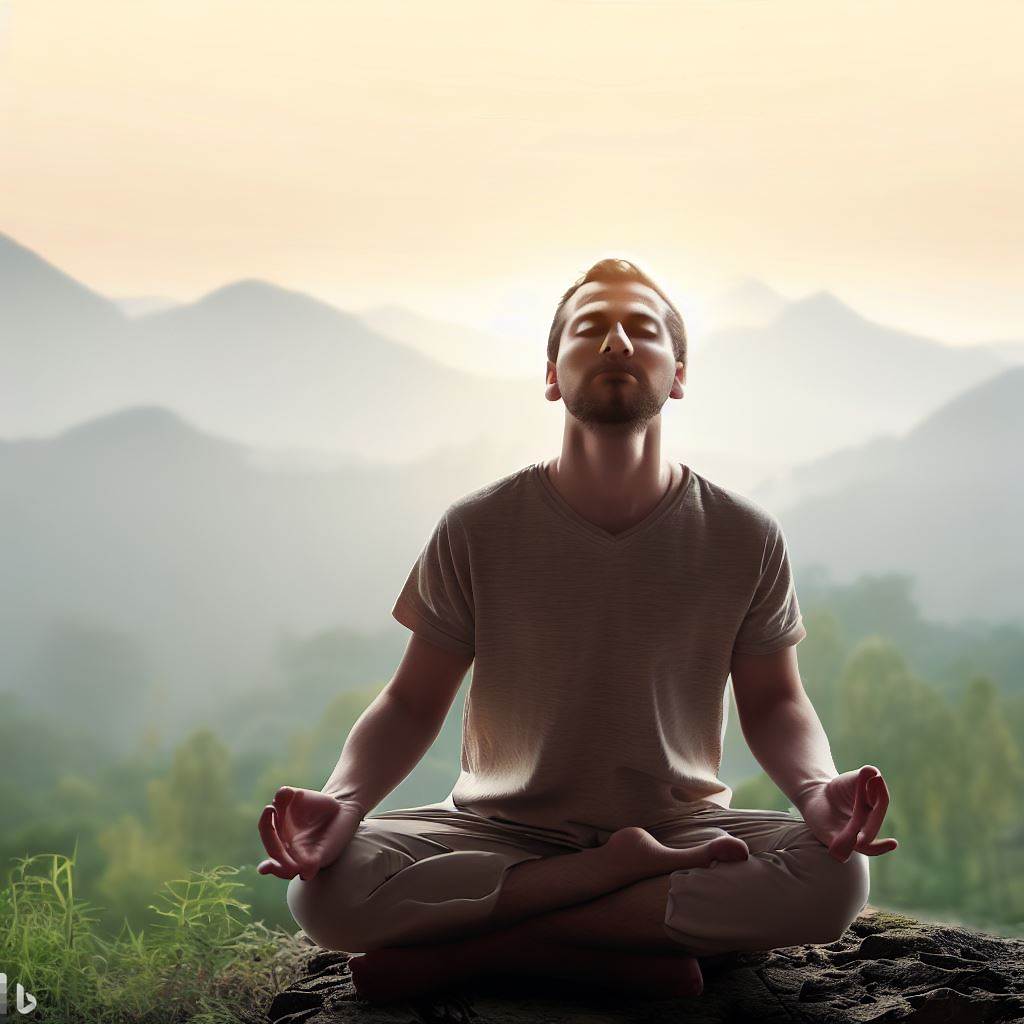The Benefits of Mindfulness Meditation and How to Get Started
Harnessing Inner Peace and Transforming Your Life through Mindfulness Meditation

In today's fast-paced and often stressful world, finding moments of calm and clarity is more important than ever. Mindfulness meditation, rooted in ancient contemplative practices, has gained widespread popularity for its numerous benefits to mental, emotional, and physical well-being. In this blog, we will explore the transformative power of mindfulness meditation and provide practical guidance on how to get started. Whether you're a beginner or have dabbled in meditation before, this guide will help you harness the benefits of mindfulness, cultivate inner peace, reduce stress, and enhance your overall quality of life.
1. Understanding Mindfulness Meditation:
Mindfulness meditation involves intentionally focusing your attention on the present moment, without judgment. It is about fully experiencing and observing your thoughts, emotions, and bodily sensations, while cultivating an attitude of acceptance and non-reactivity. This practice allows you to develop a heightened sense of self-awareness and a deeper connection with your inner experiences and the world around you. By training your mind to be present and nonjudgmental, mindfulness meditation can help you break free from habitual thought patterns and become more attuned to the present moment.
2. The Benefits of Mindfulness Meditation:
The benefits of mindfulness meditation extend to various aspects of life. Research has shown that regular practice can lead to reduced stress levels, improved emotional regulation, increased focus and attention span, enhanced creativity, and greater overall psychological well-being. Mindfulness meditation has also been found to promote better sleep, boost immune function, and alleviate symptoms of anxiety and depression. By cultivating mindfulness, you can develop a greater sense of resilience, compassion, and self-compassion, which positively impacts your relationships and general outlook on life.
3. Getting Started with Mindfulness Meditation:
Getting started with mindfulness meditation requires a few simple steps. Begin by finding a quiet and comfortable space where you can sit or lie down without distractions. Start with shorter sessions, such as 5-10 minutes, and gradually increase the duration as you become more comfortable. Focus your attention on your breath, allowing it to be your anchor to the present moment. Notice the sensations of each breath, the rise and fall of your abdomen or the feeling of air passing through your nostrils. As thoughts arise, simply observe them without judgment and gently redirect your attention back to your breath.
4. Overcoming Common Challenges:
While mindfulness meditation is a simple practice, it can present certain challenges. One common hurdle is a wandering mind. It's natural for thoughts to arise during meditation, but the key is to acknowledge them without getting caught up in them. Simply observe the thoughts, label them as "thinking," and gently bring your attention back to the present moment. Another challenge is consistency. Establishing a regular meditation habit can be challenging amidst a busy schedule. Setting a specific time and place for practice, using reminders or meditation apps, and starting with short sessions can help overcome this challenge.
5. Incorporating Mindfulness into Daily Life:
The benefits of mindfulness extend beyond formal meditation practice. It's essential to bring mindfulness into your daily life by cultivating present-moment awareness in everyday activities. This can be as simple as focusing on the sensations while eating, fully engaging in conversations, or being mindful of your posture and breath while walking. Incorporating mindfulness into daily life helps foster a sense of connection, gratitude, and appreciation for the present moment.
6. Exploring Guided Meditations and Resources:
If you prefer guidance during your mindfulness meditation practice, there are numerous resources available. Explore guided meditations through meditation apps, podcasts, or online platforms. These resources offer a variety of meditation styles, durations, and themes to suit your preferences. Additionally, consider attending mindfulness-based programs or workshops that provide structured guidance and support from experienced teachers.
Conclusion:
Mindfulness meditation is a powerful tool for cultivating inner peace, reducing stress, and enhancing overall well-being. By incorporating mindfulness into your life, both through formal meditation and everyday activities, you can experience the profound benefits it offers. Start with small steps, be patient with yourself, and gradually build a consistent practice. As you continue on your mindfulness journey, you will discover the transformative effects it can have on your mental, emotional, and physical health. Embrace the practice of mindfulness meditation and embark on a path towards greater clarity, resilience, and fulfillment in life.





Comments
There are no comments for this story
Be the first to respond and start the conversation.